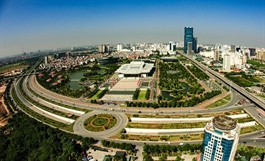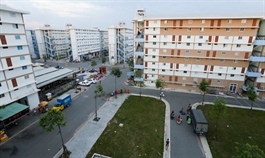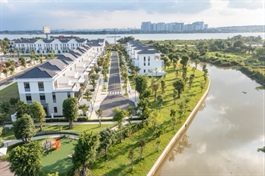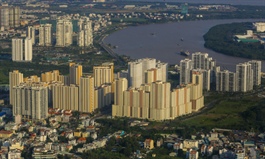Casino-hotel operator gambles on new investment strategy
Casino-hotel operator gambles on new investment strategy
Taiwan-backed Royal International Corporation (RIC), the operator of the largest casino in Vietnam’s the northern province of Quang Ninh, plans to invest in new facility despite suffering heavy losses since tourist numbers evaporated.
A new hotel is reportedly in the process of being approved by Quang Ninh People’s Committee, built across 15,000 square metres in a 33-storey building which will offer more than 660 rooms.
In 2018, RIC was planning to invest in another new 5-star development located on an 8.7-hectare land plot west of the current Royal Hotel.
This hotel-casino-entertainment complex was due to have three 5-star hotel buildings offering 1,880 rooms to the market. The progress, however, so far has not been communicated by those involved.
Apart from trying to establish new hotels, RIC mapped out an ambitious development strategy at a shareholder meeting held in September. RIC approved its development orientation to 2025 with an average profit growth of 30 per cent per year, targeting total turnover of more than $56.5 million and after-tax profit of $4.57 million by 2025.
The company’s ambitious plans in the coming year raised suspicion among investors because it reported heavy losses in the last two years, mainly caused by the pandemic.
VIR contacted RIC regarding the discrepancies, but a representative declined to give any comment, only claiming that the firm was currently in the process of transferring shares.
On October 22, Taiwan’s Kai Chieh International Investment Ltd., the owner of over 52 per cent of RIC’s shares, had transferred its entire stake to KaiViet Investment Co., Ltd., a member company that was founded in 2020. The former is a holding company registered in the Cayman Islands.
According to a company statement, KaiViet Investment will be in charge of mobilising further investment capital for new projects.
According to the company’s financial reports, RIC accumulated losses of $3 million and $3.5 million in 2019 and 2020, respectively. In the first half of this year, it reported a loss of $1.95 million, with more than $1 million gathered in the third quarter alone.
In March, shares of RIC surged 755 per cent from January despite the losses. At the time, the company’s representative told media that RIC “could not explain the price surge as business was going on as usual and there was no special change in the company’s financial situation.”
However, stock analysts suspected that major investors could be involved in artificially blowing up the price “by trading shares back and forth among themselves.”
Overall, RIC stocks had been fluctuating since the beginning of the year, opening with 20 US cents per share and increasing to a record high of $2 per share. However, after that, the price fell to around 68 US cents and stood at 85 US cents as of October 27.
In a report sent to the Ho Chi Minh City Stock Exchange and the State Securities Commission on October 19, CEO of RIC Do Tri Vy claimed that revenues from sales and services had suffered a severe decline due to the lack of tourists.
As of September 30, the value of RIC’s total assets was estimated at $37.4 million, decreasing 8.5 per cent compared to the beginning of the year. With the charter capital of $22 million, RIC is the only listed casino operator in Vietnam. RIC is currently operating the Royal Halong Hotel with 168 rooms, 11 villas, an entertainment centre, and a casino for foreigners in Quang Ninh.

























